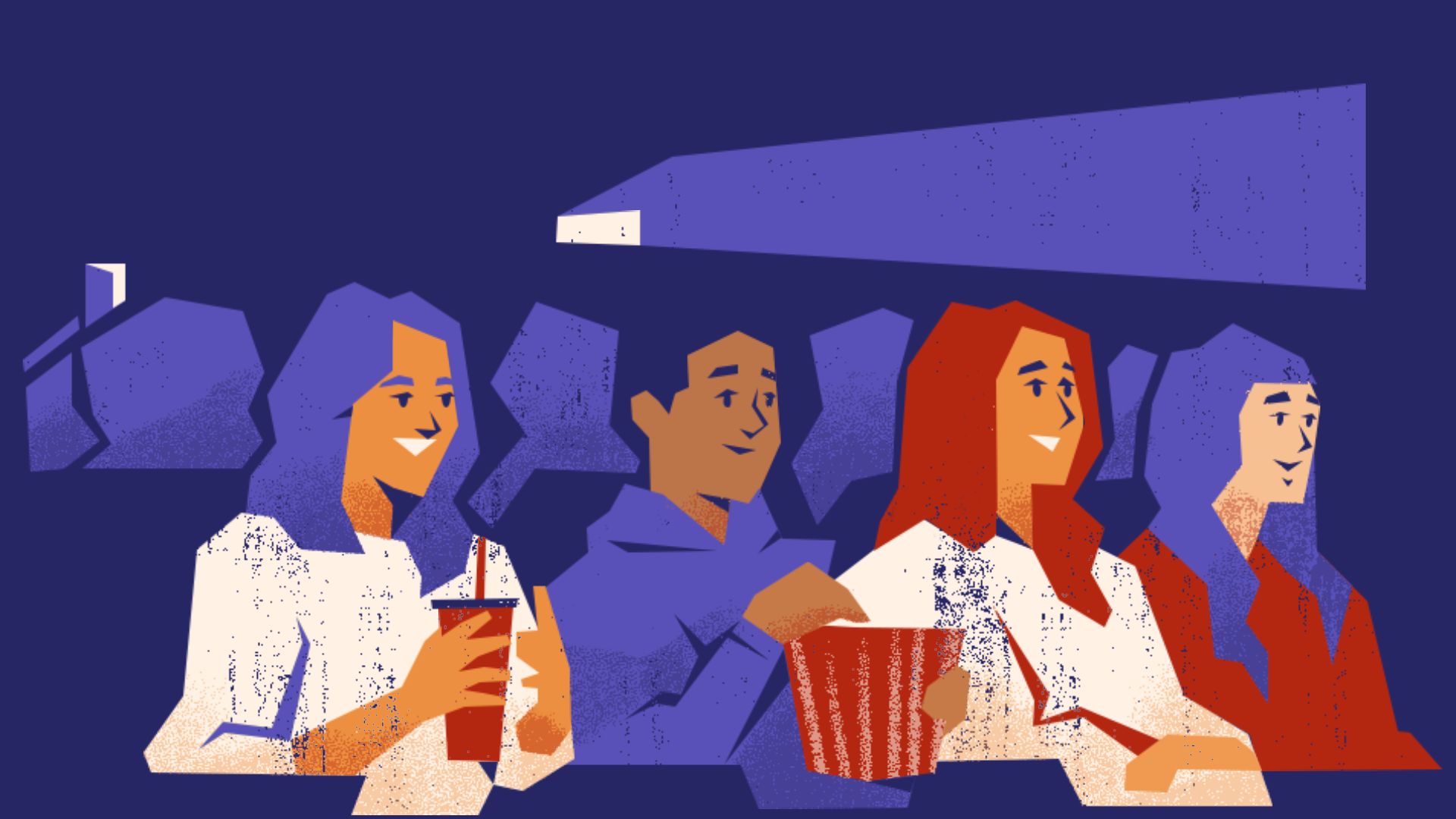Graphic of four moviegoers Canva
There’s nothing quite like being a dedicated fan. While it’s an exciting experience, being a fan means you’re a mostly passive participant in the media you enjoy.
You can engage with your favorite media in several different ways like making edits or writing fanfiction, but it’s not often you can directly influence the media itself.
If creators allowed fans to influence their work, it’d most likely come at the expense of the greater narrative. For example, screenwriters of a series shouldn’t necessarily write the romance of two characters just because fans want it. What fans want and what the story needs don’t always line up.
Excessive sequels or prequels, certain romances, or bringing a character back from the dead could all be examples of fan service. The term fan service originated amongst anime fandoms, but it’s since become more widely known in greater fandom culture.
Fan service is material added to a work of fiction for the direct purpose of appealing to the audience. It sounds harmless, but it often backfires and sacrifices the quality which garnered fans in the first place.
In recent years, the Star Wars franchise has been accused of this exact issue. Nothing can quite compare to the original trilogy, but that doesn’t stop Disney from trying to recreate that magic by implementing excessive fan service.
“Solo: A Star Wars Story” is a prime example. Han Solo is beloved by so many fans, so it made sense for him to be given a prequel story. However, it fell into the fan service trap and focused on callbacks and name drops instead of adding compelling complexity to the character.
One thing movie studios and writers tend to forget is why fans are there in the first place. Fans came to love the respective media based on its quality and story, not based on how it was catering to the audience.
The focus should be on upholding that quality first and foremost. If that quality remains, it’s possible for fan service to be done with subtlety and serve the narrative.
For instance, the latest book in the Hunger Games world hit shelves on March 18, 2025. “Sunrise on the Reaping” is a prequel focusing on Haymitch Abernathy’s origin story—something fans have hoped for since the original trilogy’s release.
Some accused “Sunrise on the Reaping” of fan service early on. After reading it myself, I’d have to say it’s much more nuanced than that.
Without giving any spoilers, some name drops and callbacks could be considered fan service, but they don’t take away from the greater story. Suzanne Collins weaves integral familiar characters into the plot in order to show how they eventually influence the original trilogy.
It’s arguably the highest way to honor fans. Collins gives long-time fans the connections and explanations they’ve longed for, but they’re wrapped up in her usual precise, observational writing.
Collins masters the art of satisfying a wide range of fan demographics, which is even more impressive considering she doesn’t have any social media and thus doesn’t hear the noise of persistent fan feedback.
Another recent example of fan service is the series “9-1-1.” Fans have been pining for two characters, Evan “Buck” Buckley and Eddie Diaz, to get together since season two. Now on its eighth season, the series looks like it may finally give in.
Series executives may feel inclined to service fans because that’s who they owe their show’s popularity to. For years, “9-1-1” fans have made “#gayfirefightershow” trend on X, formerly known as Twitter.
Many fans only began watching because they were curious to see what all the fuss was about regarding these two characters. It begs the question: do writers and artists owe anything to fans who support and popularize their work?
It’s also important to note that “9-1-1” has other canon LGBTQ+ ships, but fans don’t care for them as much as they care for Buck and Eddie. Fans lost their minds last season when Buck came out as bisexual, as they were sure it’d lead to the romance they’ve been hoping for.
“9-1-1” has never been top-notch television, but it’s entertaining. In this case, the fan service would definitely do more good than harm to both the narrative and the series’s popularity.
Fan service is more prevalent than ever due to internet fan culture. Twenty years ago, writers and artists could more effectively avoid fan feedback.
They didn’t have to worry about threads on X, pining TikTok edits, or sprawling analyses on Reddit. Nowadays, it’s hard to escape. Fans are closer than ever, and they make their voices heard.
Fan service presents writers and creators with a very fine line to walk. In actuality, it’s probably best to avoid. Once you let outside feedback influence your artistic decisions, you’re losing some of the authenticity and loyalty to the story itself.
A story exists independent of its fans, and fan service bridges that separation. For better or worse, it gives fans a certain degree of control over the media they engage with.
As fans, it’s important to ask what we’re really there for. Would we rather be catered to or engage with authentic stories created independent of our own influence?
